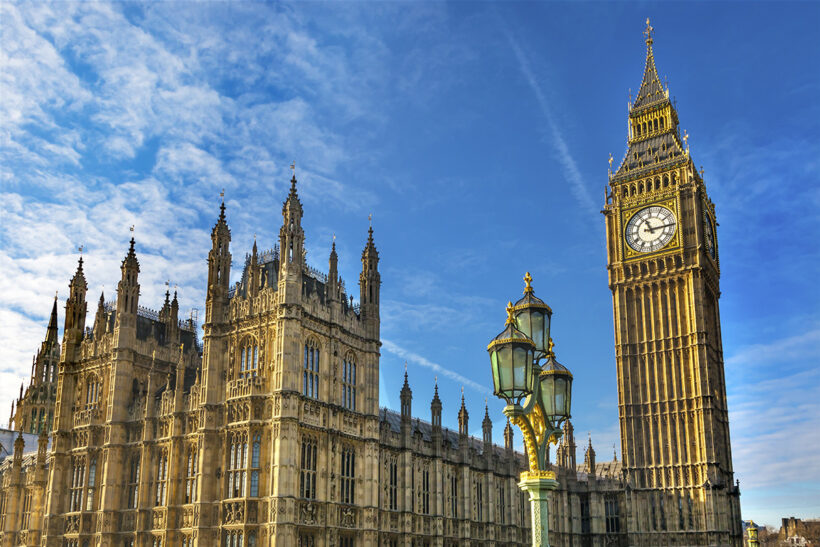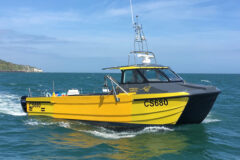Committee warned about spatial pressures on Scots industry
Industry leaders have attacked government proposals to introduce Highly Protected Marine Areas (HPMAs), saying that that they lack a sound evidence base and that their effects cannot be measured, reports Tim Oliver.
They also expressed alarm at the speed with which wind farms are being introduced, the loss of fishing grounds and the displacement effects involved, and the lack of recognition of the long-term damage that loss of space will do to the industry.
Their comments came during an evidence session of the Westminster Scottish Affairs Committee, which was exploring concerns raised by the Scottish industry about the impact on fisheries of the increasingly diverse uses of Scottish waters and the ‘spatial squeeze’ on grounds, highlighted in the joint SFF/NFFO report on the issue published earlier this year.
SFF CEO Elspeth Macdonald, NFFO deputy chief executive Mike Cohen and Elaine Whyte of the Clyde Fishermen’s Association and Communities Inshore Fisheries Alliance gave evidence. A Defra minister will give evidence to the committee in the new year.

Elspeth Macdonald: “There is little evidence to say what the impact will be, and there is no baseline to determine whether HPMAs are working.”
Elspeth Macdonald said that the HPMA concept had emerged in Scotland only recently through the Bute House Agreement between the Scottish government and the Scottish Green Party. They are essentially no-take zones, where no commercial fishing will be allowed. The intention is for at least 10% of Scottish waters to be designated as HPMAs by 2026.
“This is a massive policy shift to a very, very tight timescale,” she told the committee.
“That causes us a great deal of concern and alarm in terms of what this might lead to, and the pace at which the policy is developing, which is disproportionate to the impact it will have.”
It was put to her that environmentalists say HPMAs would protect fish stocks and allow them to grow, conferring benefits further afield.
Elspeth Macdonald said there was no evidence ‘one way or the other’ on such wider benefits. “Specific ecological objectives haven’t been identified. There is little evidence to say what the impact will be, and there is no baseline to determine whether they are working/will work or not – we can’t assess the effect.
“It’s a very fast-moving policy area for something we feel has been poorly defined.”
Mike Cohen was equally critical. “There are evidence gaps around HPMAs,” he said. “They are designating areas without being clear about what the impact of that would be, what would be achieved by doing it, what the state of the areas is currently, and where they might potentially be at the unknown end-point of a process they propose starting.”
He said supporters of HPMAs talked about ‘returning seas to their natural state’, but questioned what this meant. “When do they mean – in the 13th century?” he asked.
“If you talk about HPMAs to improve or increase fish stocks, that would suggest somebody had done some research that closing an area would have that impact, and I’ve yet to see the evidence of that.
“The HPMA round in English waters recently didn’t have anything like that evidence base – it was very much a case of ‘designate an area first and then see what happens afterwards’.”
Fisheries management measures are a more effective tool than closures, he said.
“It’s very visible to say ‘we’ve closed an area, this is a marine park’, and can be conveyed quickly and easily. It’s less soundbite- friendly to say: ‘We have in consultation with scientists as well as users of the sea identified the root cause of decline in a particular stock. Following measures over an extended period of time, we will rebuild that stock.’
“I worry about policies that seem to be more about communicating immediate action than long-term impact.
“The lack of evidence on the HPMA proposals is troubling to me, and doesn’t seem to me likely to bring any degree of success. How will we know if they have brought any environmental improvements if we don’t have an evidence basis before we designate them?”
Cumulative impacts
More general concerns were voiced about the cumulative impact on fishing grounds of Marine Protected Areas, wind farms and their associated cables, aquaculture and seaweed farms.
Elspeth Macdonald said there was an inherited patchwork of different uses of the marine environment, and that the Scottish government was trying to fit something round that. “The marine plan is retrofitting to things already in place – you’re not starting with a blank sheet,” she said.
The plan for offshore wind is for 10GW of extra power capacity, but the latest ScotWind round is for almost 25GW, and the wind farms will cover 7,000km2 of seabed – 2.5 times the size of the original government plan. “The plan is being fitted to the outcome, instead of the outcomes fitting the plan,” Elspeth Macdonald told the committee.
There was also a big evidence gap on the impact of offshore wind on commercial fish species and the effects on fisheries of effort displacement, she said. “But again, the policy and the pace of rolling these wind farms out is moving much faster than the research.
Mike Cohen said other industries were staking claims on marine space and ‘the idea a British boat can freely navigate British waters isn’t the case any more’.
“We’re changing something fundamental about how we use the sea. We’re doing it piecemeal and almost sleepwalking into a situation without looking at the overall picture,” he said.
“Areas that have been a common resource for centuries are being effectively privatised chunk by chunk for the use of commercial organisations. But we’re not taking a strategic view of how and where we’re doing it.”
Elaine Whyte, speaking for the Scottish inshore sector, said there had been ‘a massive reduction’ in boats over the last few years due to an accumulation of spatial and other pressures. “It’s even more profound inshore because boats don’t have anywhere else to go,” she said.

Elaine Whyte: “You’re making people unemployed in an area for the benefit of big international companies.”
Areas were being closed off for aquaculture, renewables, cabling and conservation, and the loss of space was transforming things at a socio-economic level. “You’re changing communities. Big multinational companies are creating wealth, but it goes abroad. You’re making people unemployed in an area for the benefit of big international companies.”
Aquaculture was also growing ‘at an exponential pace’ and the inshore industry had been ‘feeling the pinch for some time now’, she said.
There were also lower-profile cumulative impacts such as more marine traffic because of aquaculture and renewables, leading to less space in harbours.
“They are taking away the fishermen’s voice – drip by drip we’re disappearing, we’re losing agency,” she said. “These companies are far richer than fishing businesses, but the fishing is vital to their communities, and it’s vital that we keep that.”
Fishing-only areas
Asked whether some areas could be designated ‘fishing only’, Elspeth Macdonald said this was not straightforward because stocks were always moving due to natural factors and climate change.
“It might work for some species, but the concern is that you lock yourself in – an area might be good one year but not the next.”
The industry leaders also pointed out that food security was not being considered or safeguarded in the rush to close grounds for wind farms and conservation areas.
Marine plans around the coast always say fishing won’t be disrupted when applications, such as for wind farms, are made ‘unless there are pressing reasons to do so’ – but there were always reasons, and few applications are rejected, said Mike Cohen.
“They always assume we can just go and fish somewhere else,” he said. “It doesn’t start from a parity of esteem for the fishing industry.”
He said wind farms may provide a temporary boost to the country’s energy supply, but if that meant permanently losing food production capacity ‘that’s another aspect of national security that we’ve damaged in the long term for a short-term gain in another field’. “At the end of the day, you can’t eat a wind turbine – we still need to produce far more than we do.”
He said the process of building a wind farm or designating an MPA was also a process of managing fisheries because they involved a displacement effect, but those ‘really crucial aspects of fisheries management seem to be done in a significant evidence vacuum’.
The lack of concern for the impacts on the fishing industry undercuts the sustainability message of the Fisheries Act and Joint Fisheries Statement that fish ‘is an important national resource we should be managing sensibly based on the evidence’, he said.
On HPMAs and MPAs, he added: “It’s a mistake to think we can designate some parts of British waters and somehow return them to some pre-human natural state of which we have little knowledge.
“Humans live in and work in the natural environment and take food from it, and it’s something we can do sustainably.”
This story was taken from the latest issue of Fishing News. For more up-to-date and in-depth reports on the UK and Irish commercial fishing sector, subscribe to Fishing News here or buy the latest single issue for just £3.30 here.






